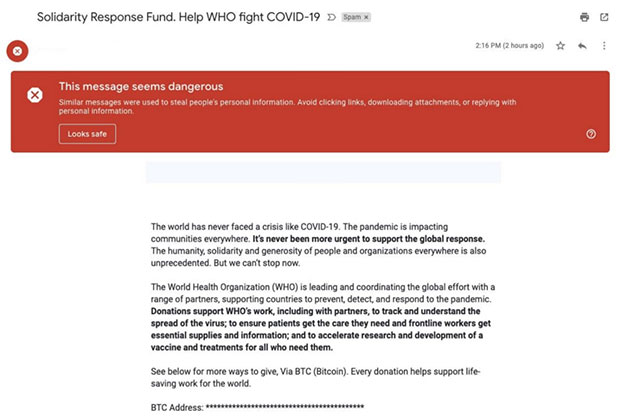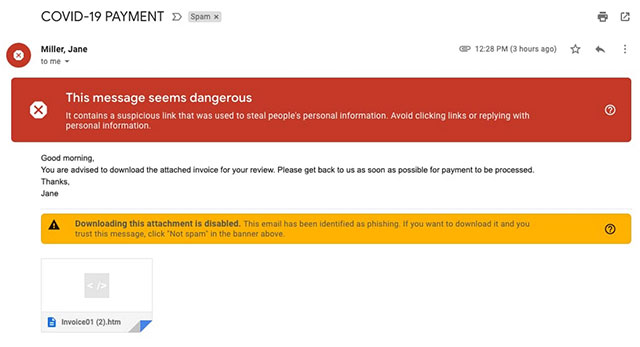Warning: The number of malicious emails is increasing rapidly on Gmail and recommendations from Google
Recently, Quantrimang has had many articles warning readers about the situation of hackers actively taking advantage of the complicated situation of COVID-19 epidemic to deploy online fraud activities as well as spreading malicious code on. Globally. After a series of fraudulent actions, cyberattacks were exposed as well as prevented, hackers still seem to have not given up.
Recently, Google said it has successfully prevented millions of malicious COVID-19-related emails on Gmail every day, continuously for more than a week, and issued warnings and recommendations for self-protection. yourself against the escalating network attack situation.
Specifically, the company's security team intervened and successfully blocked 18 million phishing emails, containing malicious code related to the Corona virus every day last week, accounting for nearly 20% of the total number of fraudulent emails blocked. day. That's not to mention the 240 million spam emails about Covid-19 that the system automatically filters by day. Google confirmed its machine learning algorithm for 99.9% spam filtering ability, and noted that the common spam emails are mainly fake emails of agencies and organizations belonging to WHO / Governments, with the content of requesting anti-epidemic donations or providing personal information.
'We have applied proactive monitoring for malware related to COVID-19 and phishing emails on general security systems and processes. In many cases, these threats are not new, they have been documented malware distribution campaigns, but are shrouded in the form of disease-related applications, exploiting attention. Everyone's altitude for COVID-19.
Once a threat is identified, we list it in the Safe Browsing API, protecting users in Chrome, Gmail and all other integrated products. Safe Browsing now helps protect more than 4 billion devices a day by showing warnings to users when they try to navigate dangerous websites or download malicious attachments. '
 Phishing email Deceptive
Phishing email Deceptive  email download malicious code
email download malicious code Besides, Google also recommends things that users should and should not do to keep themselves safe in the current situation:
- Complete the Security Checkup security process to improve account security.
- Avoid downloading files of unknown origin. Instead, use the integrated document preview feature in Gmail.
- Check the integrity of the URL before providing login information or clicking on the link in the email. Fake URLs often mimic real URLs and include additional words or domains.
- Report suspected emails.
- Consider signing up for Google's Advanced Protection Program (APP) service for better protection.